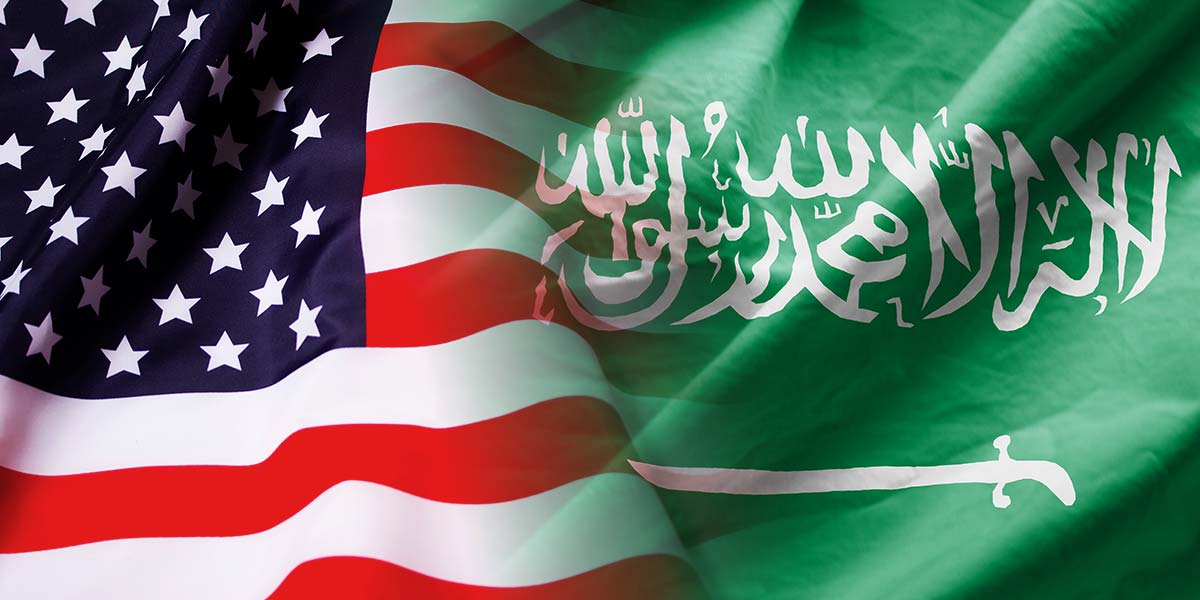Saudi Crown Prince Mohammed bin Salman, on his official visit to Washington, pledged to increase Saudi Arabia’s investment in the United States to $1 trillion, up from a previous commitment of $600 billion.
Sitting alongside President Donald Trump at the White House, the crown prince made the promise as the two leaders highlighted deepening economic and strategic ties—though no details or timeline for the ambitious investment figure were provided.
The massive investment announcement comes as the prince pushes ahead with his Vision 2030 reforms aimed at diversifying the Saudi economy beyond oil, even as the kingdom grapples with the financial demands of large-scale domestic megaprojects.
The White House also said both countries signed a memorandum of understanding on artificial intelligence and a framework for collaboration on critical minerals, signaling broader cooperation in advanced technologies and supply chains.
Meanwhile, amid the fanfare of the prince’s arrival, which included a military honor guard, flyover, and formal state dinner, controversy resurfaced over the 2018 murder of journalist Jamal Khashoggi.
President Trump, fielding questions in the Oval Office, forcefully defended the Saudi crown prince, stating bin Salman “knew nothing about” the killing—directly contradicting U.S. intelligence findings that linked the de facto Saudi ruler to the operation. The president’s remarks sparked criticism from Khashoggi’s widow and renewed scrutiny from human rights groups, but underscored Trump’s commitment to rehabilitating the U.S.-Saudi relationship after the fallout from the killing.
Alongside the investment talks, Trump announced that Saudi Arabia would be designated a major non-NATO ally, a new status that brings military and economic benefits. The two leaders unveiled agreements spanning arms sales, including a landmark deal granting Saudi Arabia future access to F-35 fighter jets and 300 American tanks.
The White House detailed a Strategic Defense Agreement aimed at strengthening deterrence across the Middle East and providing new burden-sharing funds from Riyadh to offset American costs, although it stopped short of the full alliance treaty initially sought by Saudi Arabia.
The arms agreement, particularly the impending sale of the F-35 jets, marks a major policy shift in the region and will be closely watched for its impact on military dynamics, especially with regard to Israel’s qualitative military edge.
Saudi Arabia also pushed for enhanced cooperation on nuclear energy, agreeing on a declaration that lays the groundwork for a long-term partnership. However, progress on a formal agreement has been slowed by U.S. concerns over fuel enrichment.
President Trump also used the occasion to press for normalization between Saudi Arabia and Israel. While bin Salman expressed willingness to join the Abraham Accords, he reiterated Saudi conditions that include a pathway to Palestinian statehood—terms Israel currently rejects.
Addressing personal business interests, Trump strongly denied any conflict related to his family’s commercial dealings with Saudi Arabia, stating he was “100% devoted” to public service and had no role in ongoing family transactions.
The prince’s visit is set to continue with his participation in a high-profile investment conference, where he is expected to further promote Saudi Arabia’s reform strategy and seek additional international partnerships.





